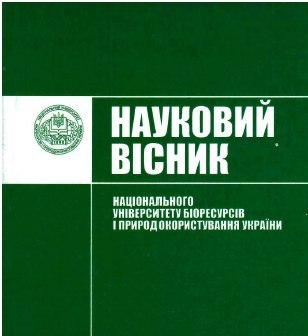Мethod of communicative culture development of future specialists of public administration in the process of professional training
DOI:
https://doi.org/10.31548/philolog0(276).2017.0140%20-%20147Abstract
Today Ukrainian society lives in conditions of transformations or not all spheres of life. And in these conditions, there is a need for highly skilled specialists who would effectively manage the social processes. Accordingly, there is a need for high- quality training of modern specialists in public administration. Reforms and institutional transformations in the education sector are also accompanied by significant changes in the educational process of higher education. The development of higher education in Ukraine is based on certain principles and in accordance with the requirements of the European higher education sphere.
The article deals with the methodology, which allows to form and develop a communicative culture of future specialists of public administration in the process of their professional training. The methods, means, and also organizational forms of training, which are determined by the content of educational disciplines, are explored. The influence of the mentioned methods on the formation of the communicative culture of
students of higher educational institutions, which carry out professional training of specialists in the field of management, is determined.
Professional training is carried out using a variety of modern teaching methods. Active teaching methods can achieve the goals and promote personal and professional growth. The methods of interactive learning are very convenient for the practical training of psychologists because they facilitate the process of learning knowledge and working out professional skills.
The communicative orientation of training in higher education institutions should consist in changing the ratio of theoretical and practical training. The article shows that vocational training should be based not only on in-depth study and mastering of theoretical knowledge of diverse disciplines, which are necessary for one or another activity, but also for the practical mastery of those skills and skills of professional activity that is required by the modern level of development of society.
References
Bulhakova, N.B., Rakhmanov, V. O. (2012). Metodyka vykladannia u vyshchii shkoli [Method of teaching in high school: teaching. manual]. Kyiv, Ukraine: NAU, 204.
Hurch, L. M. (2003). Implementation of innovative pedagogical technologies: the requirements of modernity: Problems and perspectives of Ukraine’s financial system development. Vyp. 9. — P. 151–153.
Ziaziun, I. A. (2005). Filosofiia postupu i prohnozu osvitnoi systemy [Philosophy of progress and forecast of the educational system]. Pedagogical skill: problems, searches, prospects. Hlukhiv : RVV HDPU – P. 10-18.
Nikolaienko, S. M. (2007). Naukovi doslidzhennia v universytetakh – vyznachalnyi chynnyk zrostannia yakosti osvity [Research in universities - a determining factor in the growth of the quality of education]. Prok–Biznes, 176.
Ortynskyi, V.L. (2009). Pedahohika vyshchoi shkoly [Pedagogical of higher education]. Tsentr uchbovoi literatury, 472.
Pometun, O. Pyrozhenko L. (2002). Interaktyvni tekhnolohii navchannia: teoriia, praktyka, dosvid [Interactive Learning Technologies: Theory, Practice, Experience]. Kyiv, Ukraine, 135.
Piatakova, H. P. (2003) Suchasni pedahohichni tekhnolohii ta metodyka yikh zastosuvannia u vyshchii shkoli [The modern pedagogical technologies and methods of their application in high school]. Lviv, Ukraine: LNU imeni Ivana Franka, 56.
Shepeleva, L. N. (2008). Prohrammы sotsyalno-psykholohycheskykh trenynhov [Programs of social psychological trainings]. SPb, Russia: Pyter,160.
Downloads
Published
Issue
Section
License
Relationship between right holders and users shall be governed by the terms of the license Creative Commons Attribution – non-commercial – Distribution On Same Conditions 4.0 international (CC BY-NC-SA 4.0):https://creativecommons.org/licenses/by-nc-sa/4.0/deed.uk
Authors who publish with this journal agree to the following terms:
- Authors retain copyright and grant the journal right of first publication with the work simultaneously licensed under a Creative Commons Attribution License that allows others to share the work with an acknowledgement of the work's authorship and initial publication in this journal.
- Authors are able to enter into separate, additional contractual arrangements for the non-exclusive distribution of the journal's published version of the work (e.g., post it to an institutional repository or publish it in a book), with an acknowledgement of its initial publication in this journal.
- Authors are permitted and encouraged to post their work online (e.g., in institutional repositories or on their website) prior to and during the submission process, as it can lead to productive exchanges, as well as earlier and greater citation of published work (See The Effect of Open Access).

